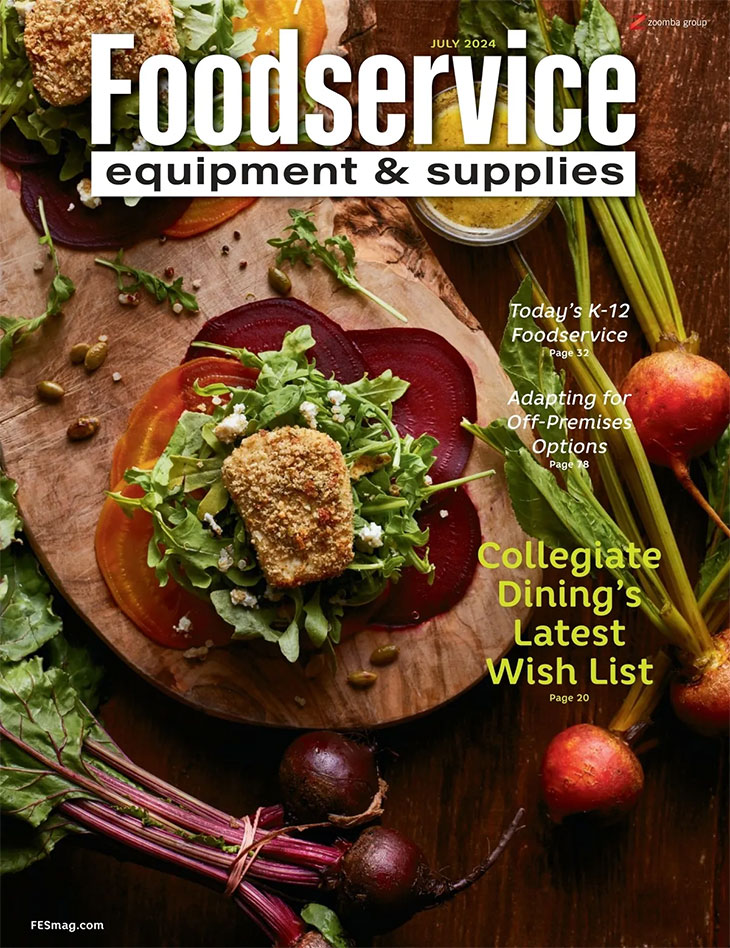FE&S introduces you to a group of professionals positively shaping the foodservice industry through their outlooks, actions and more.
Everyone travels their own unique path into the foodservice industry, but it’s their commitment to the community and the professionalism they represent that binds today’s leaders. We hope that you find their take on the industry both thought-provoking and enlightening. On the following pages we at FE&S proudly introduce you to a collection of foodservice professionals that:
- Exhibit a passion for the foodservice industry
- Approach their business dealings with customers, supply chain partners and the like in a fair and ethical manner
- Embrace technology in communication
- Participate in the educational opportunities available to themand are committed to learning
- Leverage their past experiences in their current business dealings
We hope you learn as much from reading about these foodservice professionals as we did.
 Johnita Anthony
Johnita Anthony
CFO, Consolidated Appliance Services, Mt. Vernon, N.Y.
Service Agent
What’s the most important lesson you have learned? Be willing to recalibrate. My time in this industry has shown me that you have to look within to define your outcome. I am adaptable when it is necessary, and I am always a student.
If you could improve one thing about the industry, what would it be? Stagnancy. We can use some updating on the foodservice equipment side. If we could embrace technology and bring in more outsiders, we would see some great things happen. I envision finding a way to broaden the scope and impact of our industry and to draw newcomers in.
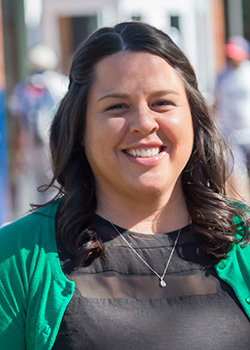 Emily Arrington
Emily Arrington
Assistant Manager, Dining Commons, Georgia Southern University-Eagle Dining Services, Statesboro, Ga.
Operator
What’s the most important lesson you have learned? The biggest lesson that I’ve learned during my many years as a foodservice professional is that you have to be a leader. As a leader, your attitude directly affects the attitudes of the people that work alongside you. If I am having a bad day and I come into the facility in a bad mood, then people will have a bad day with me. I carry myself professionally and with poise so that I can project the leadership qualities appropriate for the job. As a leader, I want our customers to see these qualities as well so they have the proper experience. I have to have somewhat of a leave-it-at-the-door mentality and bring my best energy and enthusiasm to each shift.
Describe the biggest challenge you have overcome. The biggest challenge that I’ve tackled in my career was our transition from our previous program to the opening and operation of our new facilities in 2013. Not only were we starting a brand new dining program with a newly revamped unlimited dining plan, but we officially opened our new facilities during move-in weekend for new residents. We fed 11,000 people on the first day, and I had no idea where anything was, the fire alarm went off and the sprinklers came on, and it was chaos. It was the most challenging day that I have ever had in university dining. But, somehow, our team pulled everything together, and we were able to provide for our campus community. When I look back, I can’t believe how far our team has come in three short years, and it makes me excited to think about where we’ll be in the future.
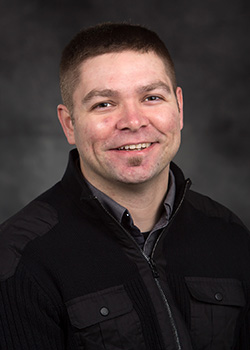 Josh Berg
Josh Berg
Residential Dining Manager, University of Wisconsin – Stevens Point, Stevens Point, Wis.
Operator
What’s the best career advice you have been given? Be yourself. Be humble. Be hungry. You have two ears and one mouth for a reason. Hard work pays off in the long run. I was sent the following Mother Teresa quote by a mentor and truly believe it is the path to success: “I can do things that you cannot. You can do things that I cannot. Together we can do great things.”
If you could improve one thing about the industry, what would it be? Perception. On one side, I think there is a negative stigma about working in the industry and on the other side is the unrealistic perception of the industry portrayed on television shows. Those who are younger see foodservice as a job to help them get by and not a career. Also, some of the shows on television have excited people about careers as chefs or in the industry, but only portray the glitz and glamour and not the long hours working mostly nights and weekends.
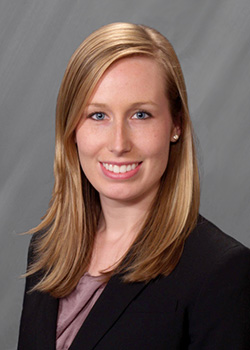 Tara Bliss
Tara Bliss
Assistant Project Manager, Brailsford & Dunlavey, Washington, D.C.
Consultant
Describe the biggest challenge you have overcome. Being young and perceived as less knowledgeable. What should count is how much you know, what skills you bring to the table and how hard you are willing to work — not how many gray hairs you have! Coming into the industry as a digital native with an analytical mind and background, and a passion for foodservice, has allowed me to approach operational challenges in a different way and bring a fresh perspective to solutions.
What excites you most about the foodservice industry? This industry is so dynamic. Some core elements have remained constant, while others are rapidly changing due to the industrial, environmental and technological revolutions. It is thrilling to have the opportunity to leverage the constant core while harnessing and adapting to innovations that shape the modern dining experience.
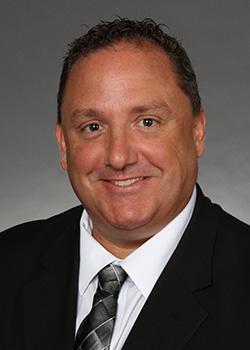 Robert Darrah
Robert Darrah
Director of Dining Services, Legacy Retirement Communities, Lincoln, Neb.
Operator
What’s the best career advice you have been given? I’ve had several! The memorable ones that stick out are, “Make sure you go in early and stay late until your work is done.” Another is, “Being on time is not an option. You must set the example for others to follow.” And from my late grandfather: “Never settle for second best; live each day as if it were your last; be a loving, devoted husband; a positive role model for your children and raise them to embrace other cultures and not fear differences in people.”
If you could improve one thing about the industry, what would it be? Find a unified solution to put an end to world hunger. Most operations throw 4 to 10 percent of the food they order away before it ever reaches a plate. At the Legacy Retirement Communities, we participate in a local program called FoodNet, and we donate all of our useable, leftover food to this organization. They pick up our donations three times per week, sort it at their facility and distribute it free of charge to families in need. I would estimate that between our four facilities alone that we donate more than 7,500 pounds of food annually. It may sound like a lot, but it averages out to about 5 pounds per facility per day. Can you imagine if all foodservice operations participated in a program like this?
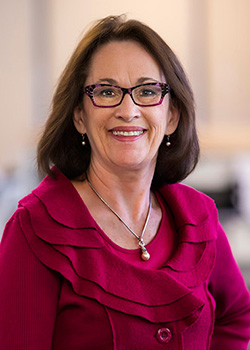 Connie Dickson
Connie Dickson
FCSI, Principal, Rippe Associates, Inc., Minneapolis
Consultant
What’s the best career advice you have been given? The career advice that has served me best came from my parents: “always do your best and follow your passions.” I recognized early in my career that I would not shine as a clinical dietitian and took a leap of faith to enroll in culinary school, forever changing my career path. Industry mentors instilled the guiding principles of being there for customers, seeking to understand their needs and exceeding their expectations. It’s hard to be successful in this business without a service mentality.
What excites you most about the foodservice industry? Foodservice touches people’s lives in so many ways. It sustains them at work and school, supports their recovery when sick, enhances their life celebrations — not to mention the pure enjoyment of food, culinary creativity and shared meals. How could that not be exciting? Foodservice has always been visionary in looking for new ways to deliver service and delight customers. Increasingly, foodservice also considers how to protect the environment in how it sources food, selects equipment and manages waste. That is also part of the mission of foodservice and an aspect that deserves ongoing attention.
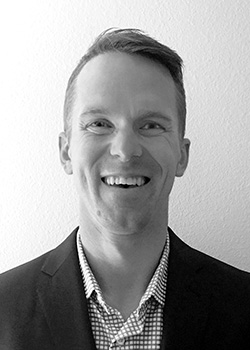 Eric Ellingson
Eric Ellingson
Vice President-Contract Operations, Bargreen Ellingson, Tacoma, Wash.
Dealer
What’s the most important lesson you have learned? The one I learned yesterday, that this business serves up lessons daily.
If you could improve one thing about the industry, what would it be? The next generation. There is a lot to honor about the historical way of doing business and going to market — a lot that we need to fight to maintain. But in maintaining traditions, we need to be cognizant of staying relevant to an ever-changing and better-educated customer base. Managing these opposing forces is the struggle we face in the next 5 to 20 years.
 Matt Evans
Matt Evans
Vice President, AIS Commercial Parts & Service, Inc., Cleveland
Service Agent
What makes you want to stay in the industry? Every day in this industry can bring a different set of obstacles that need to be handled, and no two days are alike. It is an industry that you just will never know what to expect.
If you could improve one thing about the industry, what would it be? The fact that relationships are changing within our industry. It has now become more important to facilitate relationships with clients through third-party companies instead of directly interacting with the client. Customer relationships are very important to myself and my staff and having that somewhat taken away or being managed by another party has taken a toll on what we are able to do for our customers.
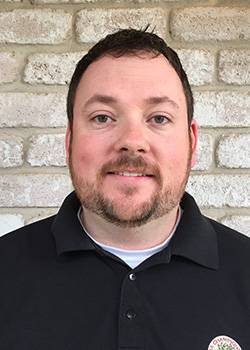 Jonathan Gustafson
Jonathan Gustafson
Purchasing, Ace Mart Restaurant Supply, San Antonio
Dealer
Describe the biggest challenge you have overcome. My biggest hurdle was a lesson learned early in my career. When I first started, I expected things to happen quickly, and I expected my career to progress even quicker. I had to learn to slow down and to put in the time. I look back now on my first years in sales and in the warehouse and I know how much those experiences have helped enhance my abilities and perspective in my current role.
If you could improve one thing about the industry, what would it be? Data sharing. Understanding and receiving data in a timely manner is more crucial than ever before. Over the past year, we have made huge strides with sharing and transmitting data between manufacturers and distributors. The Auto Quotes FEDA data connector has been the catalyst we needed to get conversations started, and I am eager to see where it goes.
 Brent Hall
Brent Hall
FCSI, COO, Clevenger Associates, Puyallup, Wash.
Consultant
What’s the best career advice you have been given? My late father must have told me a hundred times as a young teenager to always work harder than the person next to you and to listen. I have always taken this simple yet great advice to heart, and it has been working out pretty good thus far.
What excites you most about the foodservice industry? I think the most exciting thing in recent years is realizing technology is starting to impact kitchen operations. We now have kitchen equipment basically being run by computers in cooking equipment, exhaust hood systems and walk-in cooler/freezer refrigeration. There are even systems that manage and monitor the commercial kitchen energy use. While I think these can be great tools for efficiency and energy reduction, etc., we still seem to face the challenge of getting owner/operators over the initial capital sticker shock versus the benefits of reduced operating costs that continue to pay back over many years.
 Sandra Hamilton
Sandra Hamilton
Principal, Agences Hamilton Agencies, Quebec, Canada
Rep
What’s the best career advice you have been given? Integrity is key. Be true to your word. If you say you’re going to do something, do it. And if it turns out you can’t deliver for whatever reason, be upfront about it as soon as possible. It’s no secret that people appreciate honesty and efficiency way more than pretty words and empty promises.
What attracted you to the industry? It’s in my blood — I’m third generation as a manufacturer’s rep. My parents encouraged us early on to go out and explore what we really wanted to do in life. I tried out other things but I kept coming back to the business.
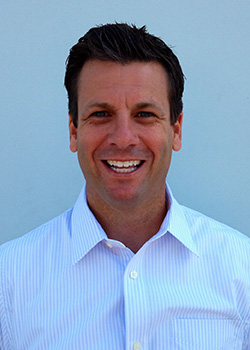 Jason Hartung
Jason Hartung
Partner, Foodservice Equipment Agents, Anaheim, Calif.
Rep
What’s the most important lesson you have learned? That perfection is an impossible goal. My uncle, Phil Hartung, taught me that improvement should be my goal, not perfection.
What’s the best career advice you have been given? My old boss, John Zucco, told me to always be prepared and to arrive early.
 Brian Henry
Brian Henry
Account Manager, Wyllie Marketing, Weymouth, Ma.
Rep
Describe the biggest challenge you have overcome. Ours is a niche industry. There is no real training or educational programs for beginners, other than the resources available through MAFSI. Coming from outside the industry into an outside sales role was like trial by fire. It’s hard being the new guy in an industry where most of the people you are working with have many years of experience. I would say establishing credibility and earning trust with key accounts were the biggest challenges for me, because it does not happen overnight. With some accounts,
it can take years.
If you could improve one thing about the industry, what would it be? I would like to find a way to eliminate freight damage. Our industry’s reliance on freight carriers makes us vulnerable. And we all share the burden. For manufacturers, reps, dealers and operators, it wastes valuable time and resources and strains relationships throughout the supply chain.
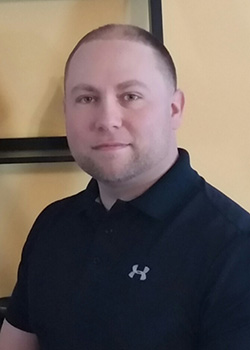 Richard Malachy Farrell
Richard Malachy Farrell
Operations Manager, Malachy Parts & Service, Bayonne, N.J.
Service Agent
What attracted you to the industry? Simple. Family business. My father. That’s it. I grew up putting parts on shelves, assisting with installs and repairs, troubleshooting on phones and shipping and receiving in the parts department. I haven’t looked back since!
What excites you most about the foodservice industry? The best thing about our industry is that the potential never ends! There is always something new and innovative on the horizon. It’s more than just new equipment. It’s the opportunities in technology, networking, education and training that are all growing each year. Also, being a part of CFESA, our growing association of service companies across the globe, opens up more doors and builds relationships that are long lasting.
 Jennifer Murphy
Jennifer Murphy
Foodservice Consultant, Street Collaborative, Charlotte, N.C.
Consultant
What’s the best career advice you have been given? A friend and co-worker once told me that we don’t live to work. We work to live. I don’t know if some would count this as career advice, but it’s something that has really stuck with me over the years. I genuinely love foodservice and intend to be involved in the industry for the foreseeable future, but it’s great to find that balance with family life as well.
Describe the biggest challenge you have overcome. Recently, I was asked to attend a design meeting for a new project. I had previously attended the kickoff meeting for the same project where I hadn’t had much of an opportunity to speak. The kitchen manager, who has held the reins of the kitchen for the past 20 years, did not seem all that impressed and looked at me the entire time like, “Oh, this little girl is going to design my kitchen?” Frankly, I was a little intimidated as I was gearing up for our second encounter. By the end of that meeting though, he was completely sold. It was a really proud moment for me, and he has been delightful to work with. He’s very excited about the project and recently invited me to cook with him in the renovated kitchen!
 Stephanie Perry
Stephanie Perry
President, Permul Ltd., Ontario, Canada
Rep
What’s the most important lesson you have learned? To not rest on your laurels. People move positions and business plans change. It is important to be open to adapting your business and philosophies, to keep partnerships fresh and staff engaged. I challenge myself to look inward and ask if there is a better way of doing things.
What excites you most about the foodservice industry? It is truly a collaborative environment that is constantly in motion, adapting to trends, incorporating new equipment technology and finding inspiration from different cultures with regard to menus and processes. When I have the opportunity to really partner with a group and to be a part of their vision, I feel excited about where the industry is going.
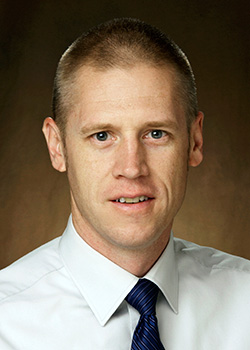 Darren Peterson
Darren Peterson
Director of Dining, North Dakota State University, Fargo, N.D.
Operator
What’s the best career advice you have been given? I am confident that many leaders have received this advice in their careers, however I believe that many do not think about its effectiveness and actually condition themselves to make it a habit. The advice that I am referencing is to listen. Managers and supervisors are trained to do just that: manage and supervise. They are not trained to listen to their employees. The fact is, as a leader, there are so many things that you can learn by listening and most of the time, the employee just really wants to be listened to!
What makes you want to stay in the industry? I enjoy building, fostering and working within a team-oriented atmosphere, where we work together on common goals in order to be better today than we were yesterday. Foodservice in higher education provides me with that opportunity.
 David Reeves
David Reeves
Director, Hospitality Services, Elmhurst Memorial Hospital, Elmhurst, Ill.
Operator
What’s the best career advice you have been given? Earlier in my career, my boss at the time encouraged me to enhance my general management skills by managing additional departments beyond foodservice. This has challenged me to become a better manager, and I now have a greater understanding and appreciation of how important the support services are within a hospital.
If you could improve one thing about the industry, what would it be? Some may not perceive healthcare foodservice to have the glamour like other market segments and, therefore, may not consider it as a career option. I believe we need to do a better job of attracting and growing talented individuals. The options are enormous for those who have the skills to implement innovative new concepts.
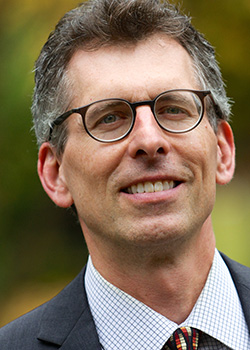 Kip Serfozo
Kip Serfozo
Managing Director, Camacho, Atlanta
Consultant
What attracted you to the industry? The foodservice industry is fun because there are so many avenues one can take to create a career that is fulfilling and enjoyable. You can pursue a career in equipment manufacturing, culinary arts, operations management, design, marketing or specialized consulting. And our field touches every person in the world since we all have to eat. I like the international element, as well. I enjoy working with owners to solve their design problems and working with project groups to create new facilities that are efficient and attractive.
What excites you most about the foodservice industry? My background is in fine dining management, and in my spare time I like dining with friends. So working day-to-day in the foodservice industry keeps me thinking about the best ways to help chefs and bartenders do the best job possible. I like the yin and yang of culinary arts meets engineering to produce better overall food and beverage experiences for all of us.
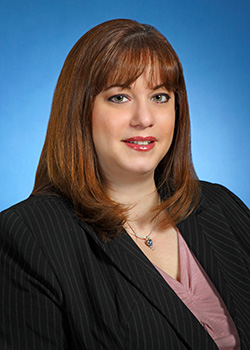 Holly Von Seggern
Holly Von Seggern
Vice President of Marketing & Brand Management, Whitsons Culinary Group, Islandia, N.Y.
Operator
What’s the most important lesson you have learned? Never pour cold wine into hot oil…well, in all seriousness that was a hard lesson to learn, but I would have to say the concept of living into the future has been the most relevant lesson. This is a simple concept but difficult to understand and embrace. The idea is that the past is gone and the future is completely unknown. If you live your life as if the only thing that matters is the present, it clears a space for creating any future you want and living into that future in the present. Act like that future is certain, and make decisions today based on that future. Don’t look back and don’t wait until tomorrow, because tomorrow is always one day away. This concept can be applied to all areas of your life, and every day is a fresh opportunity to create and live into the future you desire.
If you could improve one thing about the industry, what would it be? Perhaps I’m an idealist, but I would love to see the government, scientists and agriculture come together to push forward initiatives that are right for our planet and our bodies. Currently, we have a broken system where junk science, lobbyists and special interest groups preside, often at the detriment of the earth’s natural resources and the health of humans, plants and animals. I would like to see the clutter cleared and all parties working together authentically on safer, more natural, sustainable farming methods that are humane and yield more nutritious, higher quality foods that are harmonious with our well-being. We only have one planet and we need to preserve it for future generations.
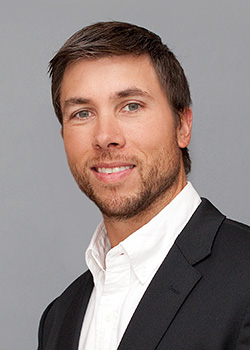 Steve Sliter
Steve Sliter
President, Commercial Parts & Service, Inc., Cincinnati
Service Agent
What’s the most important lesson you have learned? Patience. I’ve learned that your plans can change, sometimes abruptly. There are times when I think you have to make a quick gut decision, but I believe when it comes to making good decisions, you need to act based on what makes the best business sense for your company. I’ve learned over the years that sometimes it’s best to make sure you take the time and react accordingly.
If you could improve one thing about the industry, what would it be? If I could improve one thing about the industry, it would be the relationships service providers have with their reps, dealers, manufacturers and end users. When all of the channels work together, it’s a beautiful thing. But if one piece of that puzzle is out of place, whether it’s a delayed shipment, bad install or just poor communication throughout, it can lead to a lot of finger pointing. If channels can work together as a cohesive team to accomplish our one common goal of satisfying the end user, I think the end user’s confidence in purchasing decisions would increase and would ultimately lead to more repeat business for everyone involved.
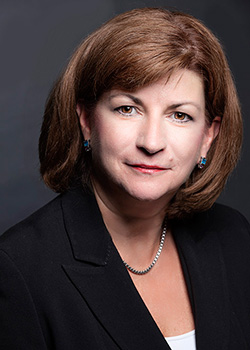 Bernadette Ventura
Bernadette Ventura
Senior Manager, Food & Conference Services, Health Care Service Corp. (Blue Cross Blue Shield of Illinois, Texas, Oklahoma, New Mexico and Montana)
Operator
What’s the best career advice you have been given? Don’t micromanage. Identifying drive and potential in people, then guiding and trusting them, has allowed me to serve more as a mentor and sounding board than a boss or client to several people throughout my career. I’m proud to say that many individuals who have reported to me, either directly or as suppliers, have gone on to grow into senior positions within our great industry. I couldn’t be more proud of them and hope I played a small role in their career growth.
What excites you most about the foodservice industry? We are an industry that touches just about everyone on the planet. We have the power of positive influence on so many levels, from helping a dishwasher find a career path to changing the way people view and make healthy food choices, to impacting hunger relief, to leveraging global purchasing power. The opportunities are endless and they all matter.
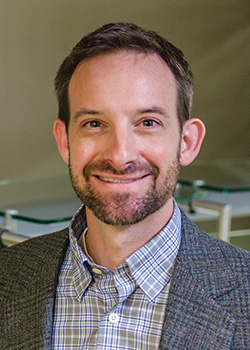 Jason Wange
Jason Wange
Managing Partner, Desert Peak Marketing, Denver, Co.
Rep
What’s the most important lesson you have learned? Take 100 percent responsibility for your life. It’s easy to blame others for your current situation or explain away why you aren’t in the place in life that you think you should be.
What makes you want to stay in the industry? At the end of the day, I like helping people win. So many people are connected to foodservice in one way or another, and I have ample opportunities to work with people and help them get from where they are to where they want to be.
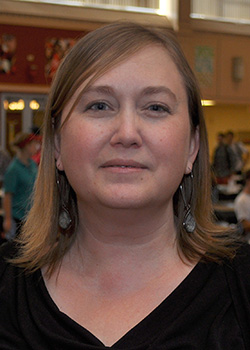 Jennifer Whitcomb
Jennifer Whitcomb
Assistant Director of Dining Services, Dickinson College, Carlisle, Pa.
Operator
What’s the most important lesson you have learned? Don’t be afraid to fail. Most times you won’t, and if you do, you learn what not to do. In the end, this helps you figure out a new way of doing things.
What attracted you to the industry? The many different aspects of the job. This includes the people, both our internal and external guests, the levels of customer service and communication that are needed to manage daily and long-term operations, and the variety in both tasks and customers on a daily basis. I enjoy the many details that come with physically operating a unit, creating a menu and sourcing product, along with the challenges that come with managing a budget and, of course, the amazing food! Basically, the structured chaos of managing restaurants appeals to me most. FE&S

